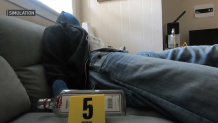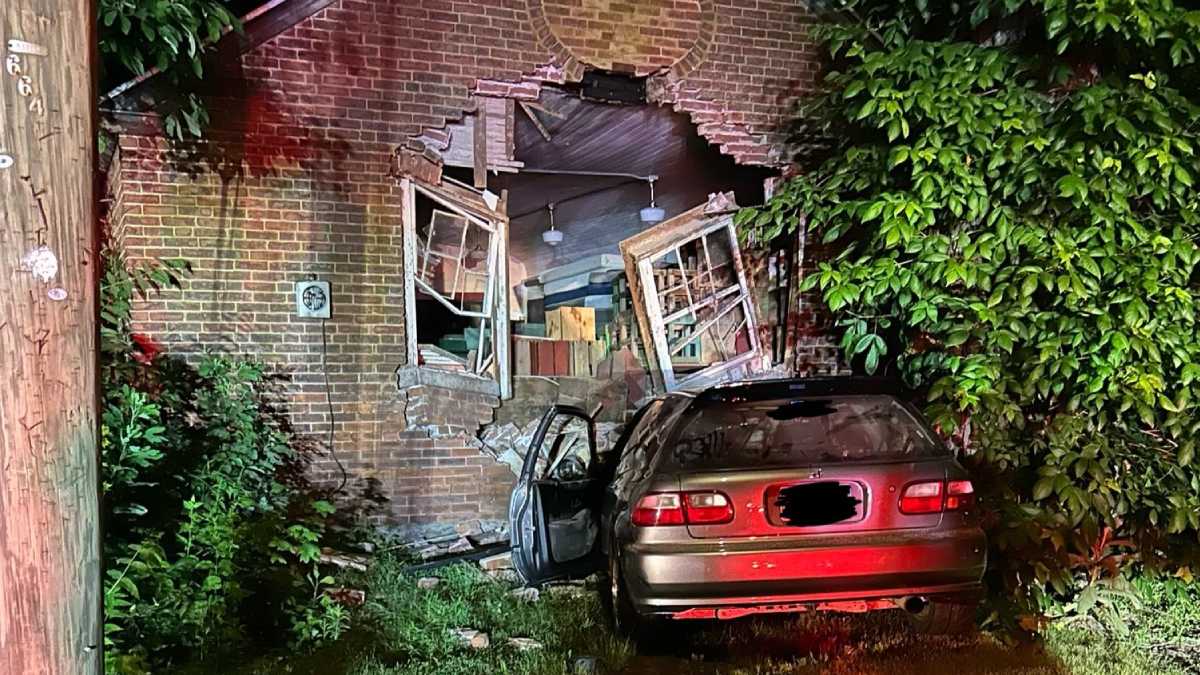The immersive program at the University of New Haven is geared toward students interested in forensic science or criminal justice.
Most of us have watched detective shows or movies on television, but have you ever had the chance to experience firsthand what it feels like to be a crime scene investigator?
A group of high school students are doing just that at the University of New Haven’s Crime Scene Investigation Academy.
Stream Connecticut News for free, 24/7, wherever you are.
Don’t be deceived by the charming exterior of a blue house in West Haven: there is something going on there!
“The room is in disarray,” Sofia Astarbi, a senior at St. Joseph By The Sea in Staten Island, New York, said.
Get top local Connecticut stories delivered to you every morning with the News Headlines newsletter.
“Appears to be a dead body,” Manuel Villanueva, a senior at Windsor Locks High School, added.
Thankfully, a team is on the case.
“We have seen drug like substances that are known to be suspicious with alcohol bottle,” Astarbi said.
Local
They are documenting evidence, piece by piece.
“Taking photographs, videos, they're sketching the scenes out. You can't touch anything without a warrant,” Ethan Rawding, a senior at Brookfield High School, said.
It is all to help determine the cause of death for victims in the mock crime scene, and whether fowl play was at-hand.
“We believe that she was strangled in a fight, or there was an overdose through her being drugged,” Astarbi said about the victim.
The different scenarios set up in the house give the high school students hands-on experience in learning forensics.
“I'm learning a lot,” Villanueva said. “It's very like something that you would really see in a crime scene. The professors here, they been former police officers and crime scene investigators. They've seen this hundreds of times.”

After evidence is gathered at the house, it goes to a separate lab for packaging and labeling, ensuring that it is ready to be sent off to the crime lab.
“We had bullet casings and marijuana pre-rolls. We also had a t-shirt with bloodstains on it,” Conor Drown, a senior at Academy of International Studies in Bloomfield, said.
The camp directors say these exercises help the high schoolers learn about future career options in forensic science and criminal justice.
“If this is what they're interested in doing in the future, this is what happens,” Dan Maxwell, distinguished lecturer in criminal justice at the University of New Haven, said.
The immersive program aims to put the students at the forefront of an investigation.
“Another thing they learned is that most people get their perceptions of crime scene investigation on television shows that last an hour, including commercials, and that's not how it works in real life. It takes all day, a long time, methodical, systematic," Maxwell said.
Many students are already thinking about their future careers.
“I think I want to go into CSI,” Drown said.
The crime division is on the mind.
“I’m thinking of like Harford PD, and trying to become a crime scene investigator in a city,” Villanueva said.
They’re embracing their ambitions.
“I took at least 15 pages of notes in two days!” Astarbi said.
It is re-affirmed by the academy, where they contribute to cracking a case.
“Having forensics, where you can have a lot of new scenarios, and coming up with your own conclusions on stuff is really interesting,” Rawding said.
The Crime Scene Investigation Academy is part of two sold-out weeklong summer camps at the university.



